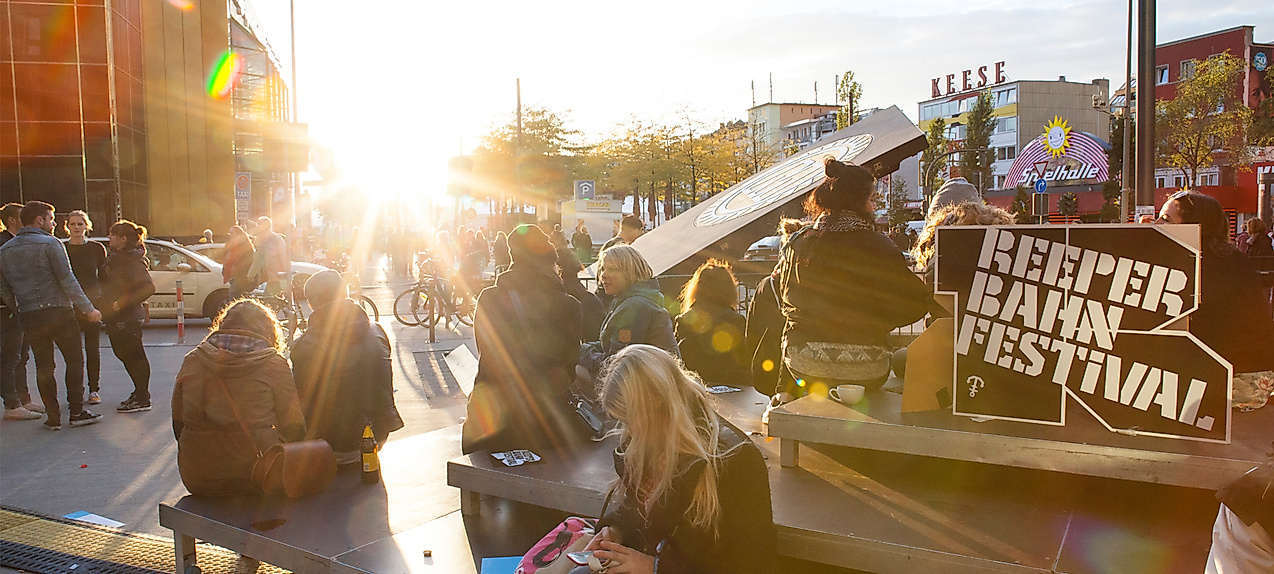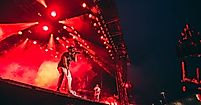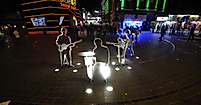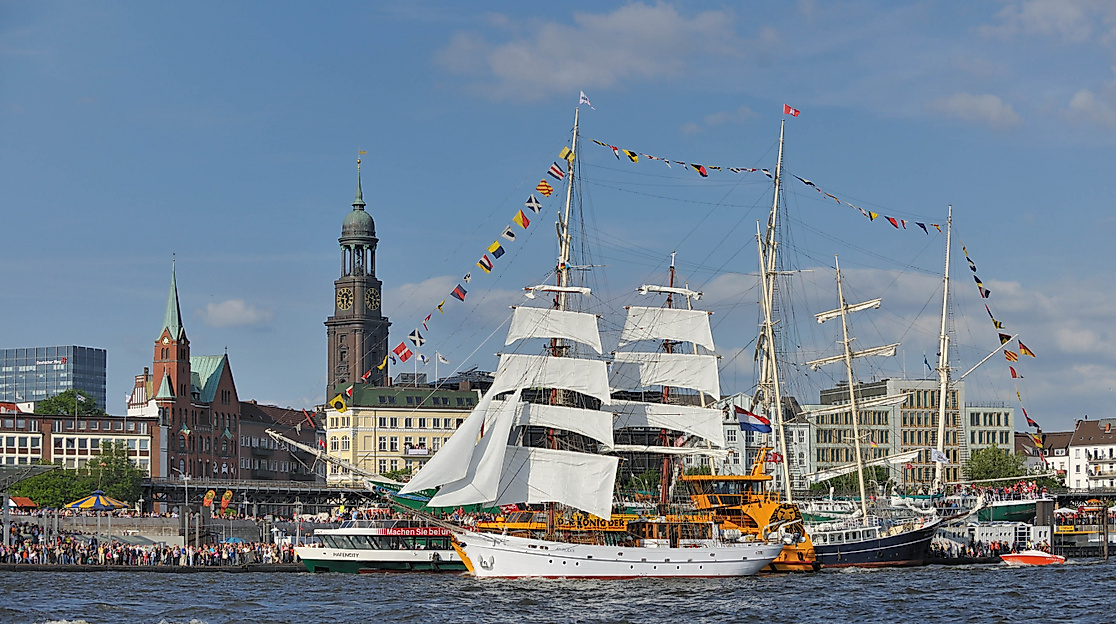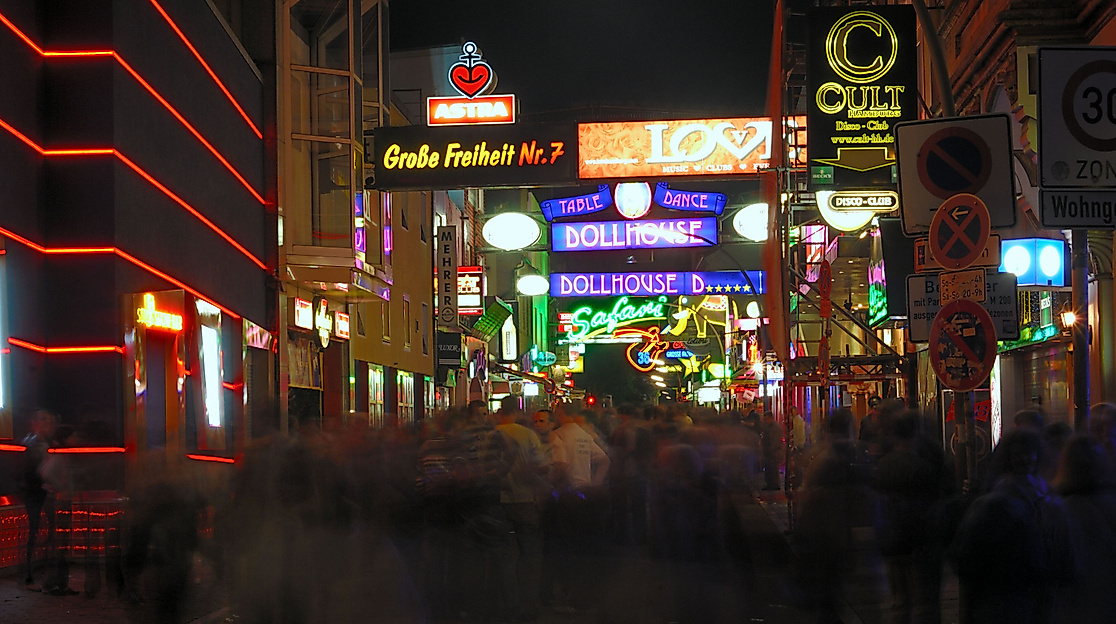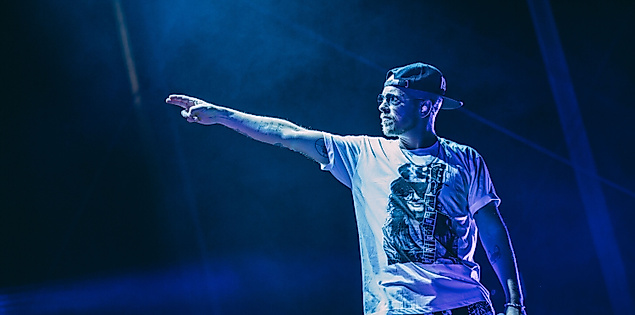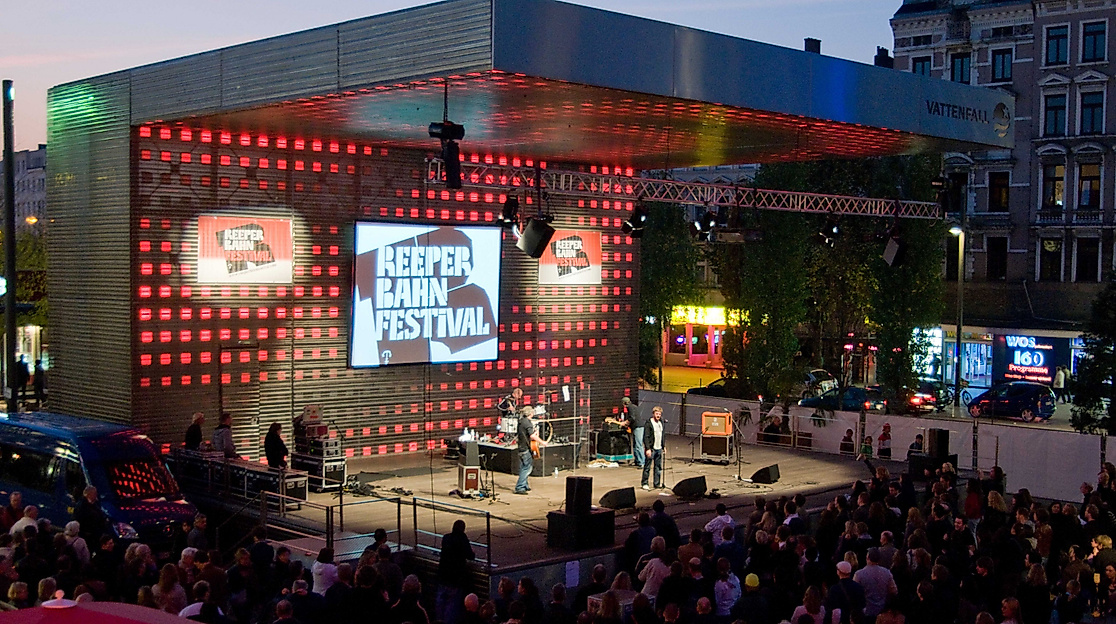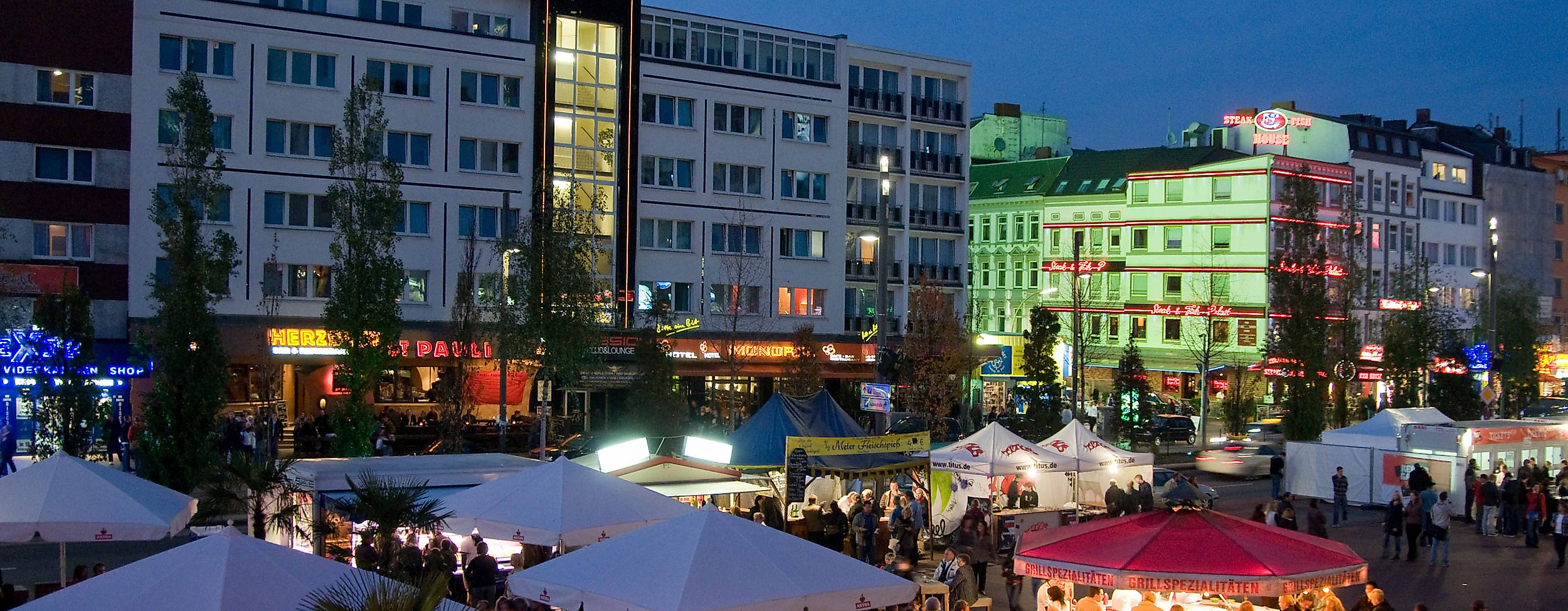
Sounds of Hamburg Hamburg and its musical talent
What’s the sound of Hamburg? Well, there’s no such thing as “the Hamburg sound”. That’s because Hamburg is the birthplace and home of many great musicians, all of whom have shaped the local music scene across a variety of genres. Artists such as Nena, Udo Lindenberg and Scooter, and bands such as Tocotronic, Blumfeld, Beginner, Deichkind and Ace Tee found their inspiration in Hamburg.
Hamburg is not only the gateway to the world, but also the home of many talented musicians who inspire international audiences as part of a band, a duo, or as solo artists. With its cosmopolitan flair, a varied, creative art and culture scene and plenty of inspiration on every corner, Hamburg has been a popular and influential music hotspot for decades – e.g. in the areas of pop, hip-hop, punk, techno, folk, indie, and electroclash. The city offers a unique, multi-layered sound experience for connoisseurs of literally any music genre.
Arms linked and swaying to the tune: Hamburg's seafaring songs
The port of Hamburg has been shaping the city’s character for centuries – just like Hamburg’s shanty choirs. The lifestyle of the sailor has left its mark on Hamburg’s music landscape, e.g. with the popular classic of 1850, “De Hamborger Veermaster” (Hamburg’s four-master). Comprising Low German as well as English lyrics, this sea shanty describes the conditions found on 19th century freight ships. “Auf der Reeperbahn nachts um halb eins” (On the Reeperbahn at Half Past Midnight) by actor Ralph Arthur Roberts is another song that is well-known beyond the city’s boundaries. This popular folk song has been heard on the streets of Hamburg since 1921, and in the early 1930s actor Hans Albers revived the song and made it unforgettable. Even today this song evokes a maritime atmosphere and gives a hint of the merriness of the old days.
The School of Hamburg
In the late 1980s, bands such as Tocotronic, Blumfeld and Die Sterne led Hamburg to become the eponym of a distinct music genre: the School of Hamburg. Inspired by the Frankfurt School and the Neue Deutsche Welle movements, young musicians expressed their urge for political participation, while also rendering their views on social issues. Today, Hamburg-based bands such as Schnipo Schranke are following in the footsteps of these pioneering artists.
A multitude of music styles
“Hamburg, meine Perle” (Hamburg, my gem) is a love song dedicated to the Hanseatic city that many visitors and locals have certainly sung along to. Artists such as Lotto King Karl, Nena and Udo Lindenberg – whose life and works can be experienced at the interactive Panik City exhibition on the Reeperbahn – have all addressed Hamburg in their songs. And the city’s music landscape couldn’t be more diverse.
Bands and artists like Fettes Brot, Samy Deluxe, Das Bo and Beginner stand for down-to-earth, well-crafted hip-hop that has been flourishing in Hamburg ever since the 1990s. Artists such as Ace Tee continue this urban coolness and represent Hamburg’s hip-hop community of the next generation.
Major beats per minute are generated by a couple of influential veterans of the German techno scene – most notably Scooter, Moonbootica, and DJ Koze. Hamburg-based greats of the house scene, such as Solomun and David August, make people dance around the world.
Creative bands such as Deichkind, who keep experimenting with styles like tech-hop and electroclash, are always sure to get the crowd going. They are as much a part of Hamburg’s vibrant music scene as singer-songwriter Leslie Clio and the female duo Boy, whose unique voices have even enchanted audiences in the historic St Michael’s Church. For almost any trend, genre, or taste, young artists in Hamburg can find inspiration and audiences – across the city’s countless clubs, bars, studios, open-air events and record stores.
Moin Hamburg, hello music world
The Fab Four are obviously the prime example of how Hamburg can lay the foundations for a successful music career. Even though they were not born in Hamburg, the Beatles declared many decades later that they had grown up there. In the early 1960s, these exceptional talents started their international career in Hamburg – in the live clubs of the Reeperbahn and the colourful St Pauli district, e.g. at the Indra and the Star Club.
And today, many years later, the Reeperbahn Festival, Europe’s largest club festival, attracts music fans from across the globe. Established and up-and-coming artists from the Hamburg region take to the stages here, hoping for an international career. Local music labels, among them Warner Music, Dial Records and Buback, provide the breeding ground for nurturing new musical talent.
